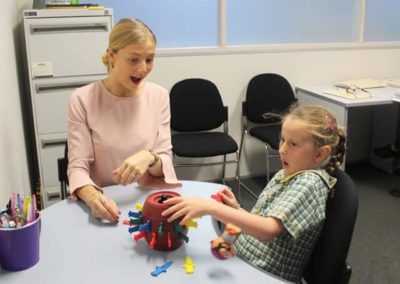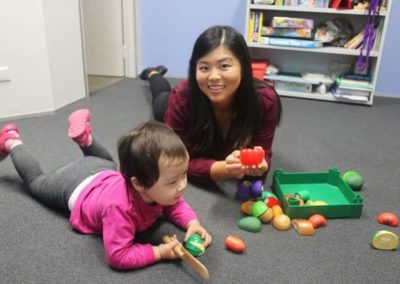This blog unveils an often underestimated, yet incredibly impactful, facet of professional growth in the realm of speech pathology: peer mentoring. If you’re a speech pathologist aiming for continuous improvement, or if you’re curious about how peer mentoring can shape your journey, this article is tailor-made for you. Let’s dive in and explore the value of peer mentoring:
 1. Shared Learning and Collaboration: Peer mentoring creates a platform where speech pathologists come together to share their knowledge, experiences, and insights. It’s a collaborative endeavour where both mentors and mentees contribute their unique perspectives to a collective pool of wisdom. By learning from one another’s successes and challenges, a symbiotic relationship emerges, nurturing a sense of camaraderie and unity within the practice.
1. Shared Learning and Collaboration: Peer mentoring creates a platform where speech pathologists come together to share their knowledge, experiences, and insights. It’s a collaborative endeavour where both mentors and mentees contribute their unique perspectives to a collective pool of wisdom. By learning from one another’s successes and challenges, a symbiotic relationship emerges, nurturing a sense of camaraderie and unity within the practice.
2. Fresh Perspectives and Innovation: Every speech pathologist brings their distinct background, training, and experiences to the table. Peer mentoring introduces fresh perspectives that can spark innovation and creativity. Whether it’s a novel approach to therapy techniques or a new way of engaging with clients, these diverse viewpoints foster an environment where the practice continually evolves and adapts to changing needs.
3. Skill Enhancement and Confidence Building: Peer mentoring provides a safe space for skill enhancement. As a mentee, you can tap into the expertise of seasoned professionals who have navigated similar challenges and triumphs. This access to real-world knowledge not only enhances your clinical skills but also boosts your confidence as you gain a deeper understanding of effective strategies.
4. Emotional Support and Encouragement: The journey of a speech pathologist can be both rewarding and demanding. Peer mentoring goes beyond clinical expertise; it provides emotional support and encouragement. In times of uncertainty or professional challenges, having other peers to lean on can provide a valuable source of motivation, empathy, and reassurance.
 5. Two-Way Learning: The beauty of peer mentoring lies in its reciprocity. While mentees gain insights from more experienced mentors, mentors also benefit from mentees’ fresh perspectives and innovative ideas. It’s a two-way learning process that fosters mutual respect and a shared commitment to growth.
5. Two-Way Learning: The beauty of peer mentoring lies in its reciprocity. While mentees gain insights from more experienced mentors, mentors also benefit from mentees’ fresh perspectives and innovative ideas. It’s a two-way learning process that fosters mutual respect and a shared commitment to growth.
6. Cultivating a Learning Culture: Peer mentoring cultivates a culture of continuous learning within the private practice. No matter your level of experience, there is always more to learn. When professionals actively engage in mentoring relationships, it sets a precedent for others to seek out learning opportunities and actively participate in the growth of the practice. This learning culture becomes a cornerstone of the practice’s success.

Conclusion: Elevating Your Practice Through Peer Mentoring In the dynamic world of speech pathology, growth isn’t just a goal—it’s a journey. Peer mentoring serves as a powerful vehicle on this journey, facilitating shared learning, igniting innovation, enhancing skills, and providing invaluable emotional support. It’s a collaborative approach that elevates the practice as a whole while nurturing the individual growth of its team members.
So, whether you’re considering becoming a mentor, seeking a mentor, or envisioning a thriving practice, remember the transformative potential of peer mentoring. Embrace this opportunity to connect, learn, and evolve together, and watch your private practice flourish like never before.
To learn more about Speak, Learn & Grow’s position on peer mentoring and find out what team members have said about the mentoring program, click HERE










